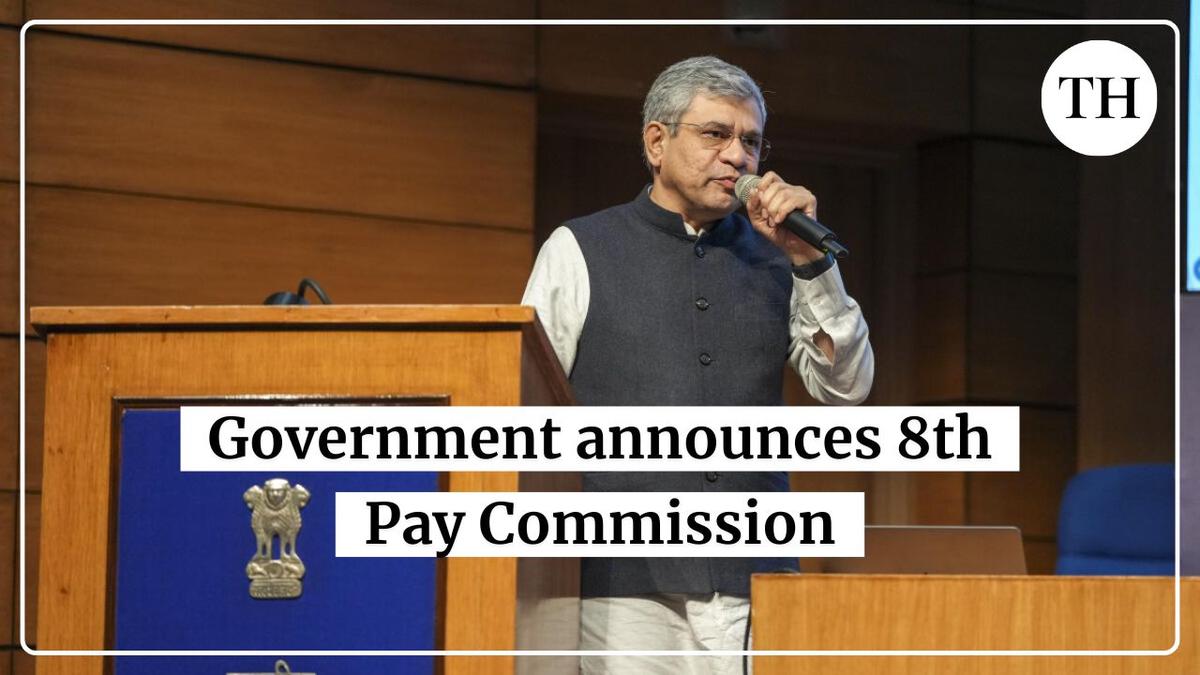Eighth Pay Commission

- 17 Jan 2025
In News:
The Union government has approved the constitution of the Eighth Pay Commission, benefiting 50 lakh central government employees and 65 lakh pensioners, including serving and retired defence personnel. The decision, taken ahead of the Delhi Assembly elections, aims to address long-standing demands from trade unions and employee organizations.
Key Features of the 8th Pay Commission
- Early Constitution: Although the Seventh Pay Commission's term ends in 2026, the early establishment of the Eighth Pay Commission ensures timely recommendations and implementation.
- Composition: The commission will have a Chairperson and two members, typically led by a retired Supreme Court judge.
- Terms of Reference (ToR):
- Revision of Pay: Recommend updates to salary structures and allowances.
- Addressing Pay Disparities: Resolve wage differences across various cadres.
- Market Parity: Align pay structures with industry standards.
- Pension and Retirement Benefits: Improve pension schemes and adjust them for inflation.
- Economic Impact Analysis: Assess how salary hikes contribute to economic growth.
- Stakeholder Consultations: Engage with governments and other stakeholders before finalizing recommendations.
Economic Implications of the 8th Pay Commission
- Employee Well-being: Higher wages will enhance the quality of life for government employees.
- Boost to Consumption: Increased salaries are expected to stimulate demand and support economic expansion.
- Ripple Effect on PSUs & States: Many public sector undertakings and state governments follow the central pay commission’s recommendations, potentially leading to wider economic benefits.
- Fiscal Considerations: The implementation of the Seventh Pay Commission in 2016-17 led to an expenditure increase of ?1 lakh crore. A similar rise in 2026-27 could impact fiscal space for capital expenditures.
Challenges and Concerns
- Implementation Delays: Past commissions have taken two years to submit recommendations, which could push implementation beyond 2027.
- Living Wage & Pension Issues: Existing formulas for minimum wage and pension calculations may need revision to reflect rising healthcare, education, and digital access costs.
- Financial Burden on the Exchequer: A significant increase in revenue expenditure could limit the government’s ability to invest in infrastructure and development projects.
